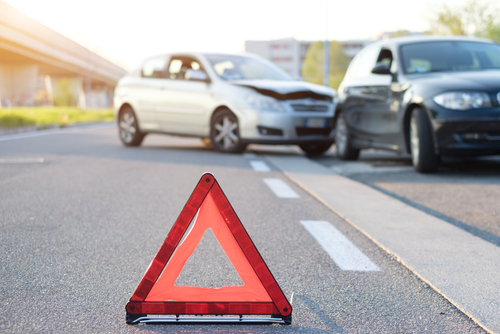Often, people lend family members their cars or sometimes let friends drive them. For example, parents may allow their college-aged children to use the family car while away at school. A car’s title might also be in one spouse’s name, although the other usually drives it. Both the owner and driver may be held liable for a driver’s negligence in situations like these.
Car Owner Liability for Negligent Entrustment
Even if the owner wasn’t driving, they may still be held liable for a car accident involving their vehicle — a title owner can be responsible for entrusting their car to someone who drove it recklessly or carelessly.
New York Vehicle & Traffic Law § 388(1) specifies that owners of vehicles can be held liable for death, injury, or property damage if permission to use the vehicle was either “express or implied.” Whether the owner specifically told the driver that they could operate the car or authorization was inferred — or could be reasonably assumed — liability can attach to the owner in the event of an accident. If the driver stole the vehicle or was explicitly told they could not use it, the permissive use doctrine generally won’t apply to invoke owner liability.
In some cases, an owner may have been negligent if they failed to properly maintain the vehicle, if such failure contributed to the accident. For example, if the vehicle owner knew the brakes were bad or that there was a problem with the transmission, they could be held liable for an accident due to their failure to ensure the car was in good working condition.
Employer’s Vicarious Liability in New York Car Accidents
Sometimes car accidents happen while a driver is in the course of their job duties. If a driver is operating a company vehicle, their employer may be held vicariously liable if the accident arose in connection with their employment. An employer is generally not responsible for an employee’s acts outside the scope of their employment — i.e., accidents occurring during a lunch break, or an employee’s detour to run personal errands.
Under the legal theory of respondeat superior, an employer may be held liable for their employee’s negligent actions in some cases. For instance, if the employer failed to train the employee properly or have certain training policies in place, liability could attach for an accident involving one of its employees if the lack of training caused it.
Car Driver Liability
Whether they were driving their own car or someone else’s, a vehicle operator is responsible for their actions behind the wheel. Regardless of who owns the vehicle, a negligent driver can still be held liable in a personal injury action. A driver may be held negligent for:
- Failure to obey traffic signals
- Following too closely
- Driving under the influence of alcohol or drugs
- Speeding
- Running a red light
- Driving recklessly
- Driving while operating a cell phone
- Texting while driving
- Inattention
In situations involving separate vehicle owners and operators, determining liability can be complicated. However, both the owner and operator can be named in a lawsuit. Liability may attach to either party or both.
Contact a New York Car Accident Attorney
If you suffered injuries in a New York car accident, it is crucial to contact an experienced personal injury attorney right away. A personal injury attorney can help ensure the negligent party is held accountable for their actions and protect your legal rights.
The Dearie Law Firm, P.C. can help obtain you the maximum compensation you deserve for your car accident injuries. The Dearie Law Firm, P.C. has convenient office locations in Manhattan, Brooklyn, and the Bronx, as well as mobile locations serving Brooklyn, Queens, Manhattan, the Bronx, Staten Island, Westchester, Rockland County, Nassau County, and Suffolk County. Contact us today for a free consultation.

